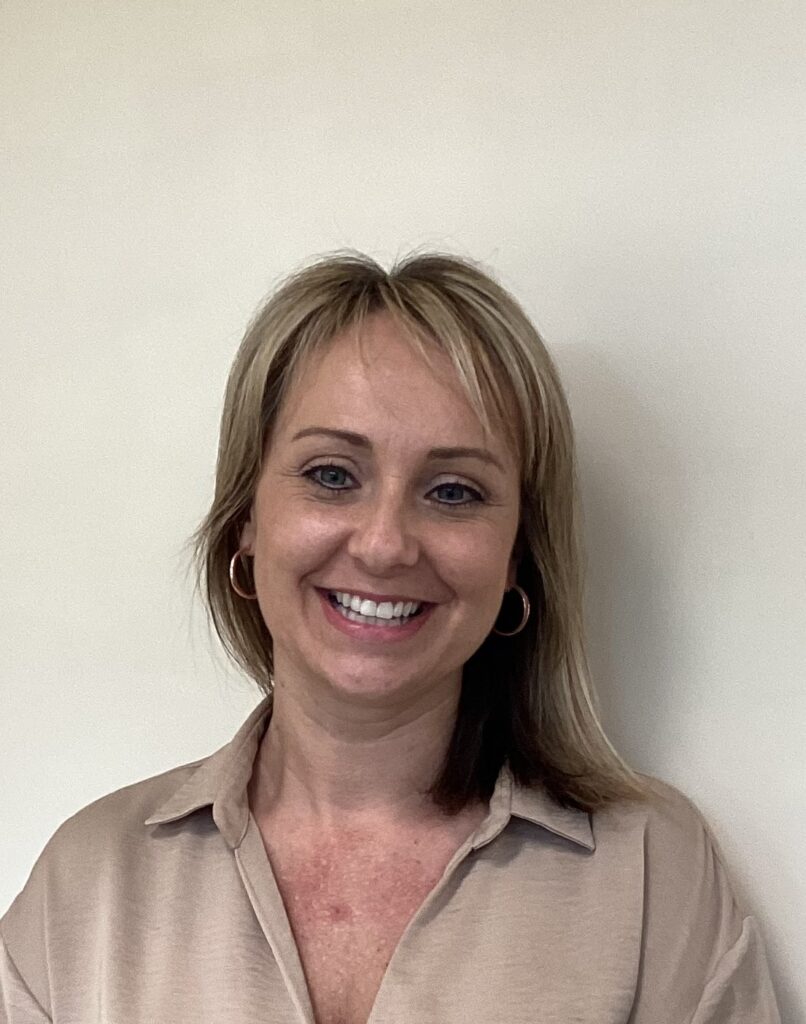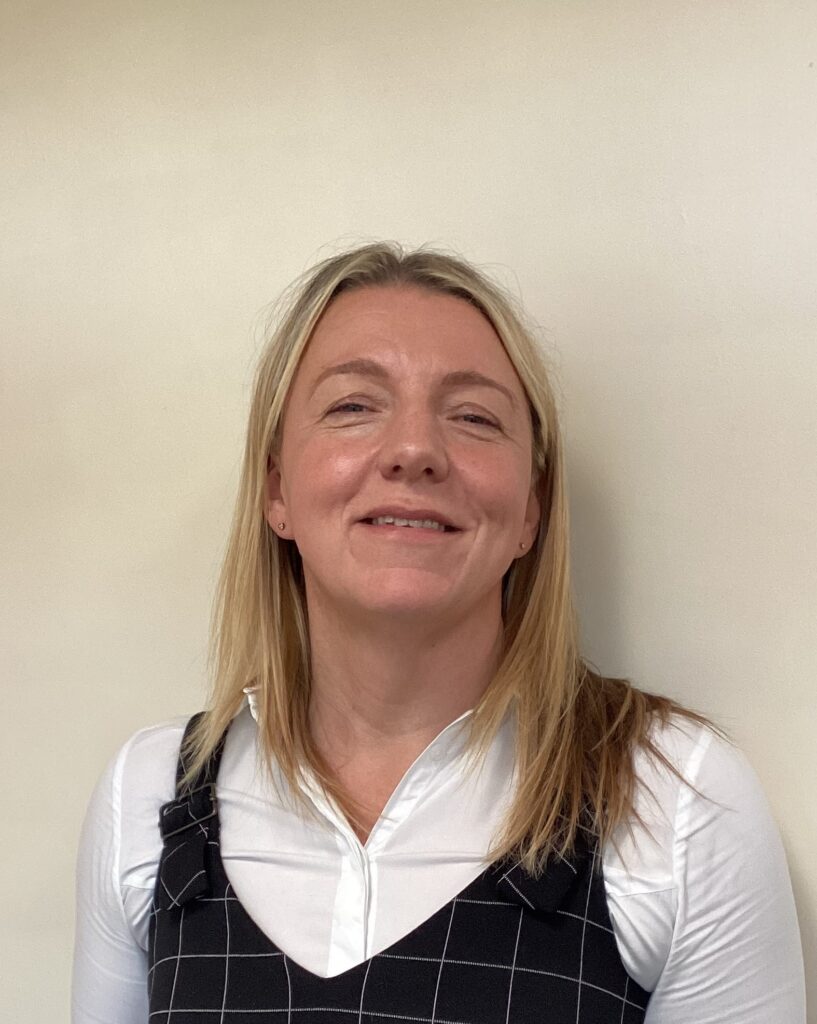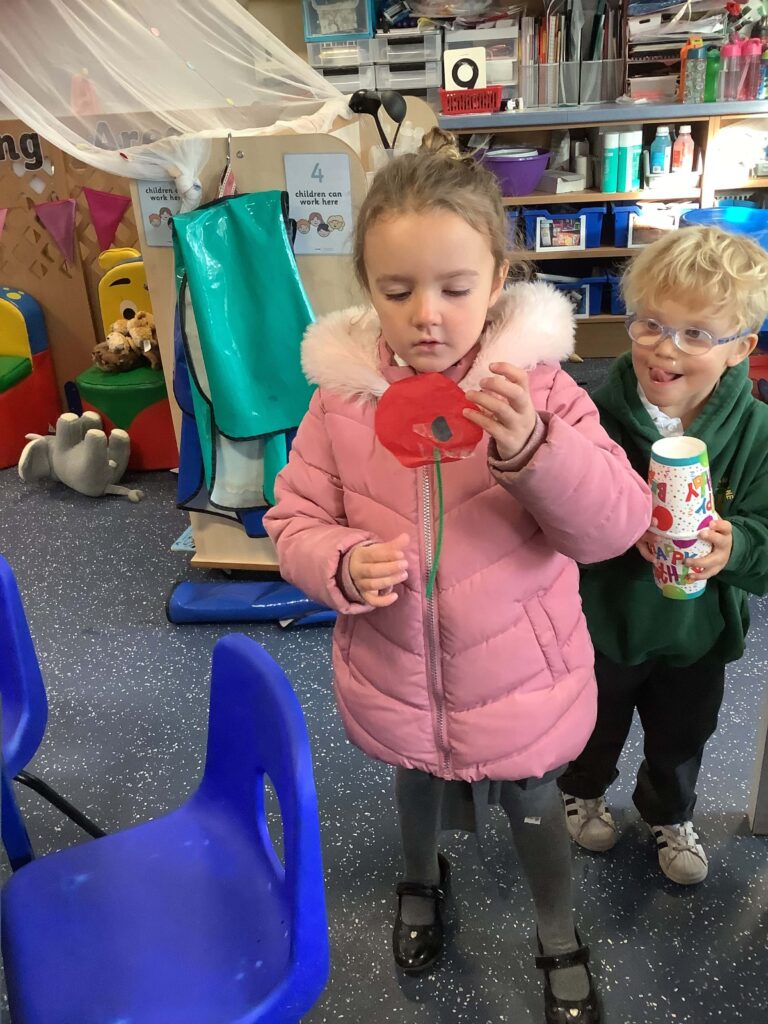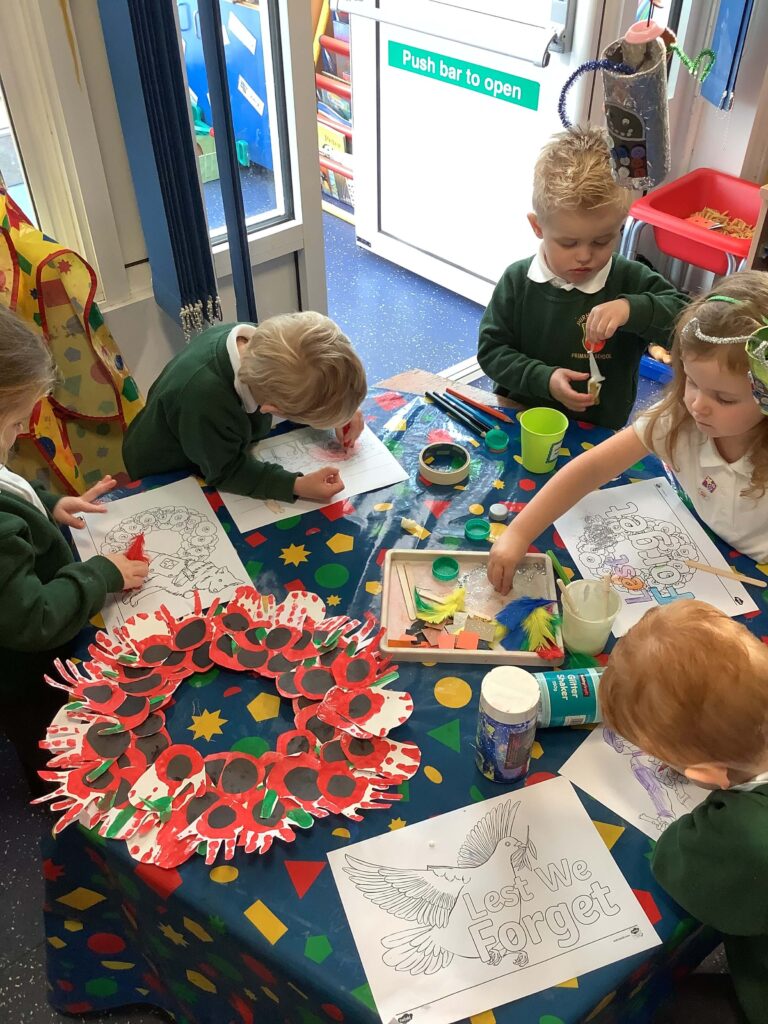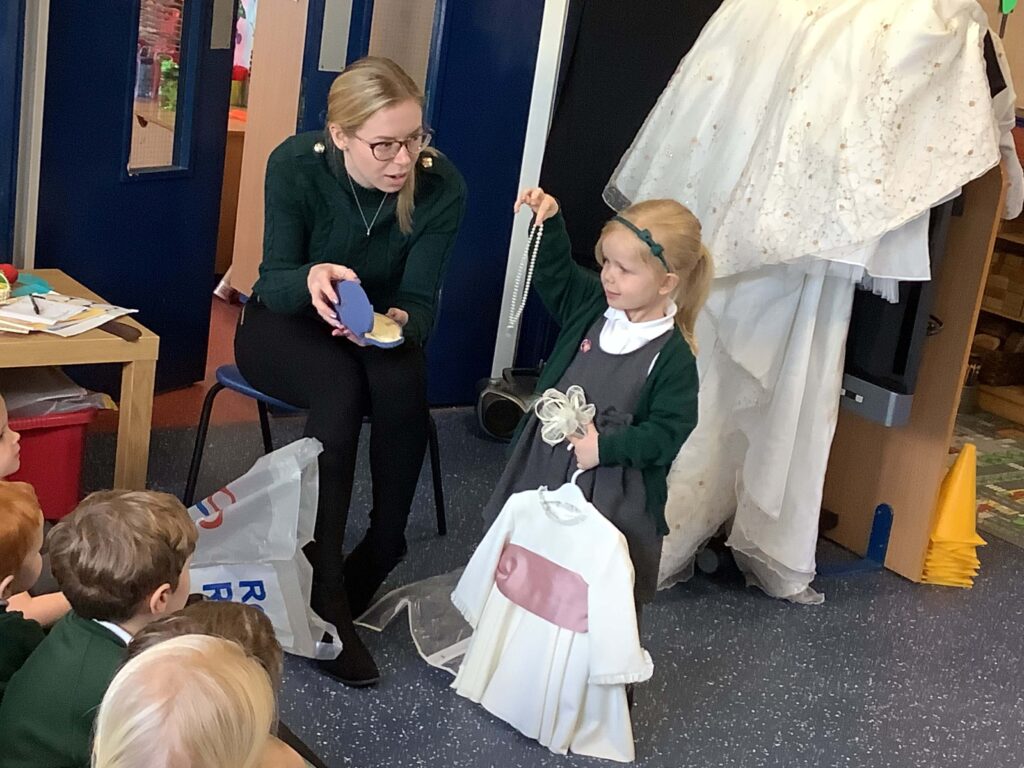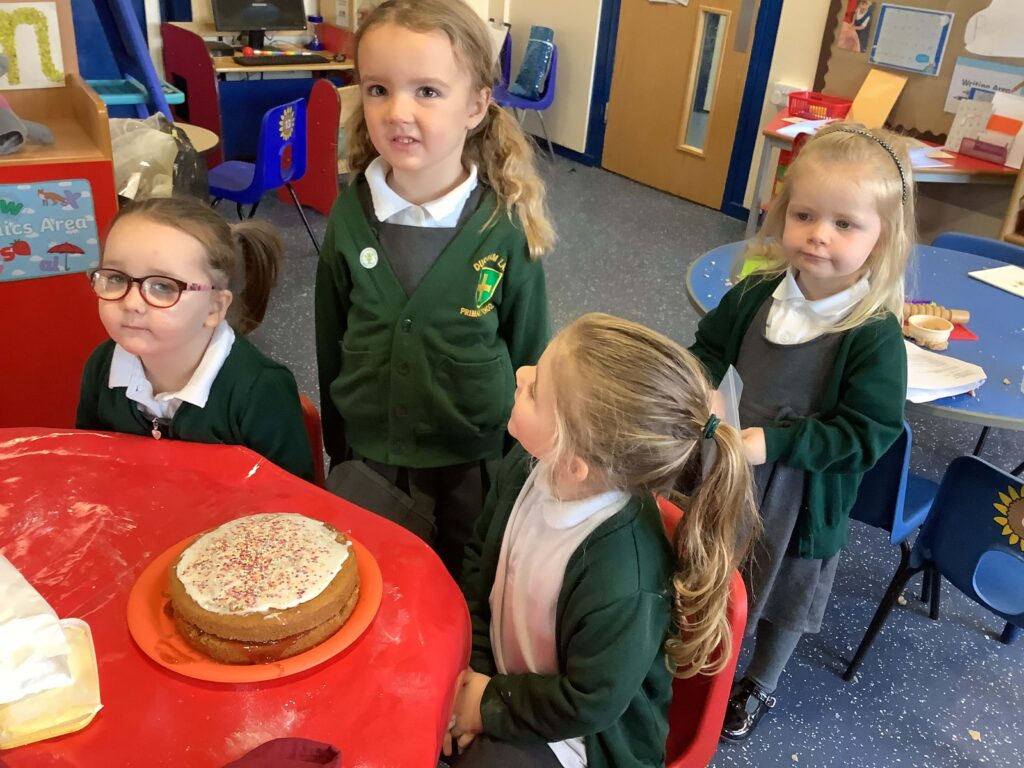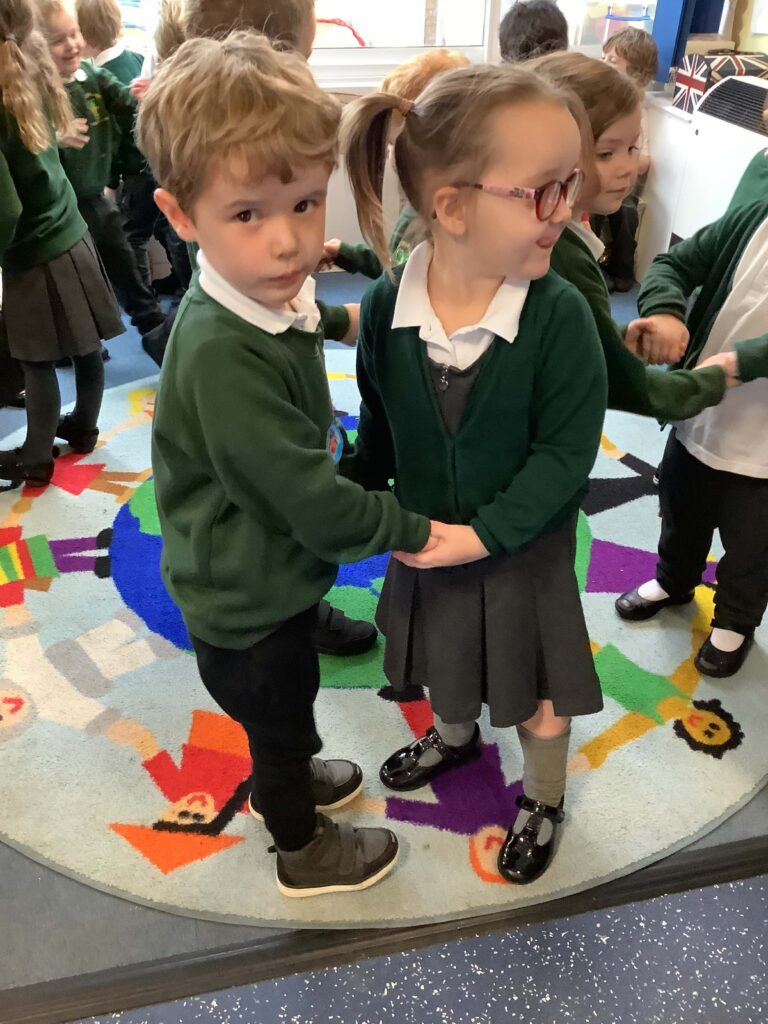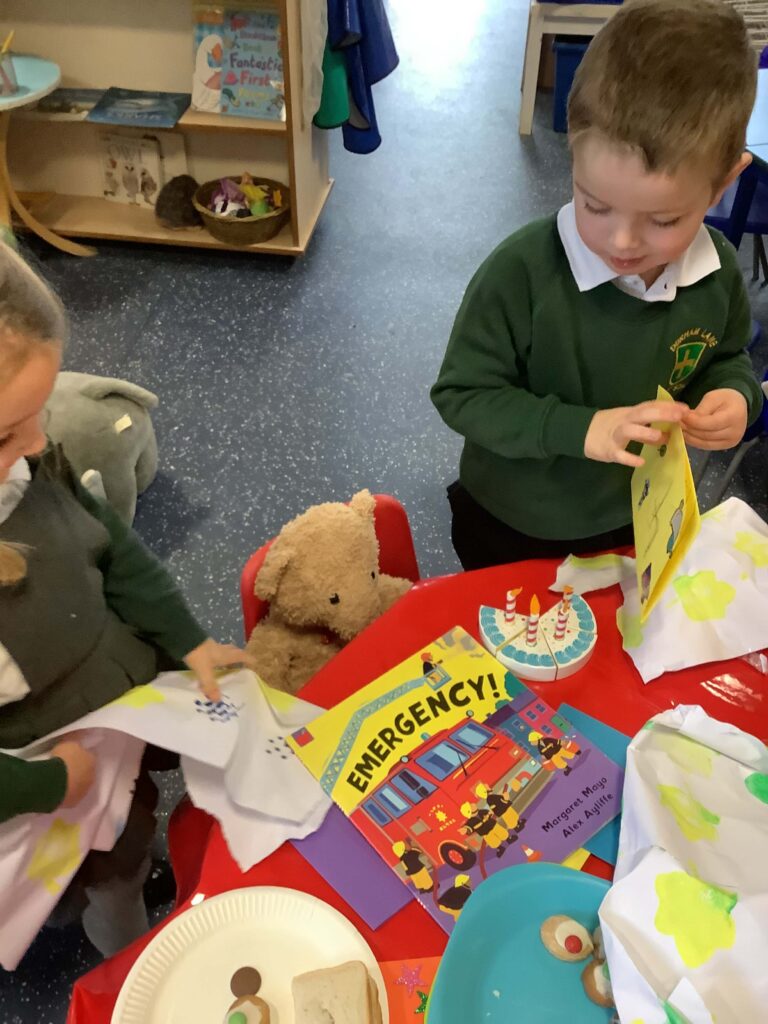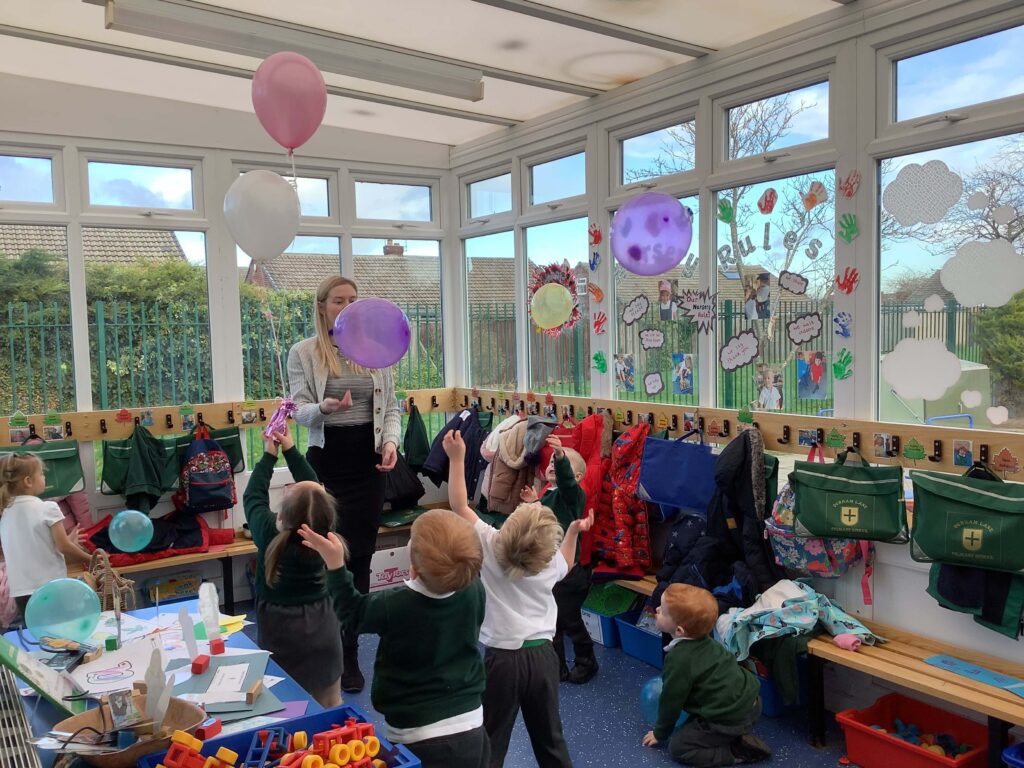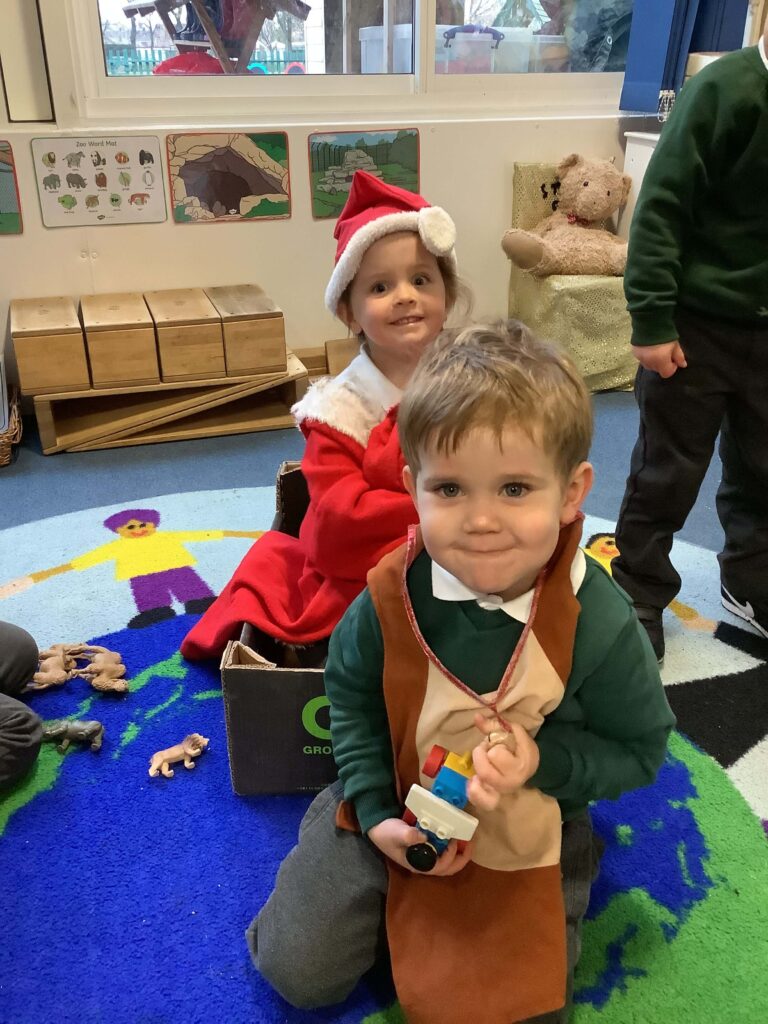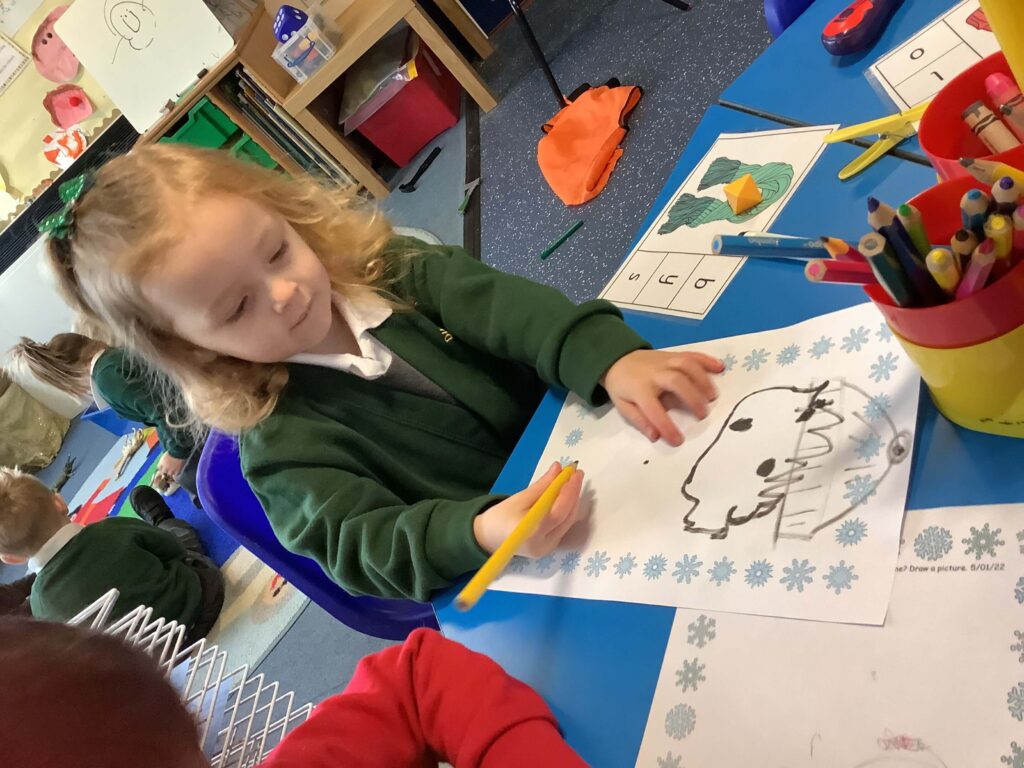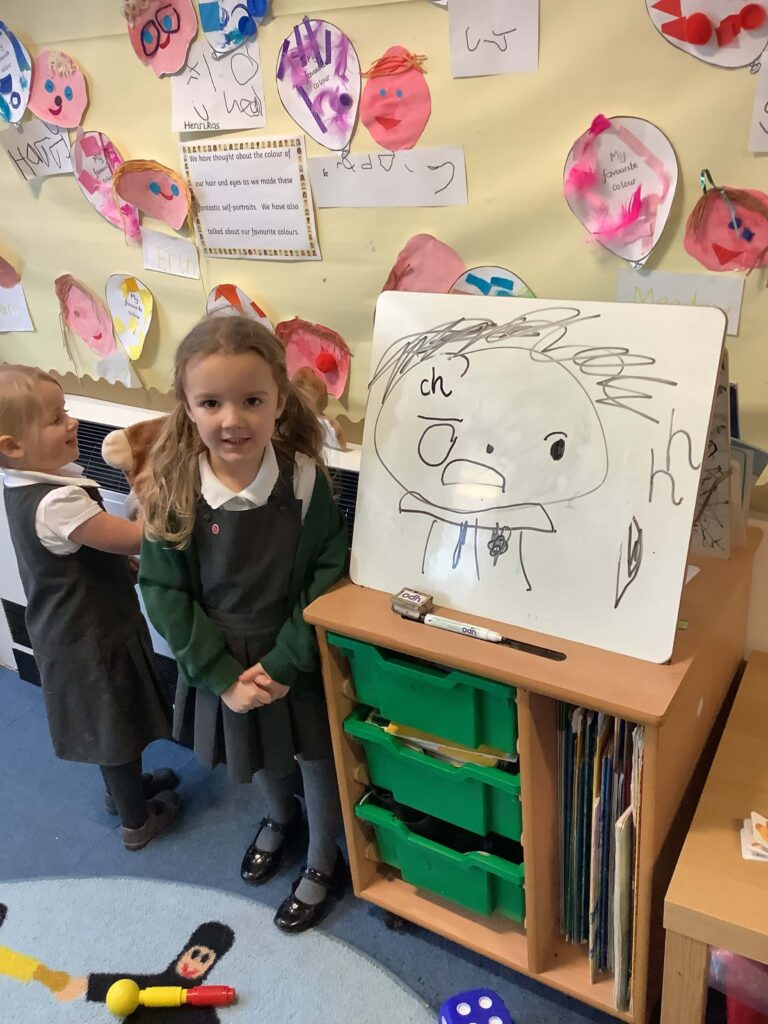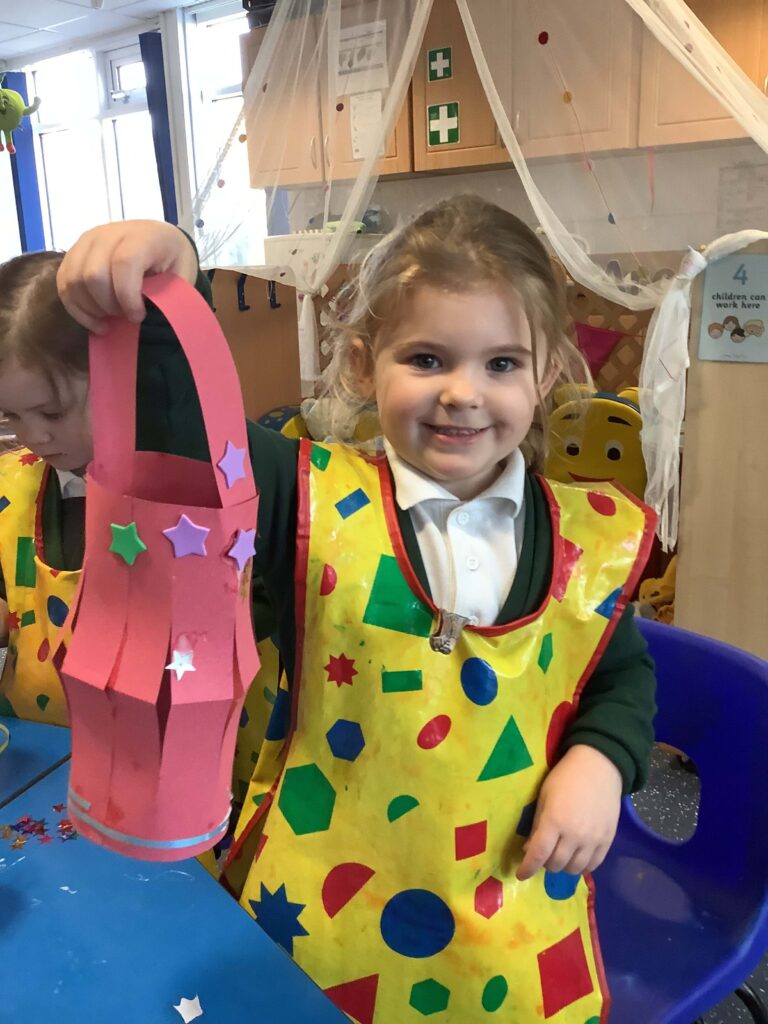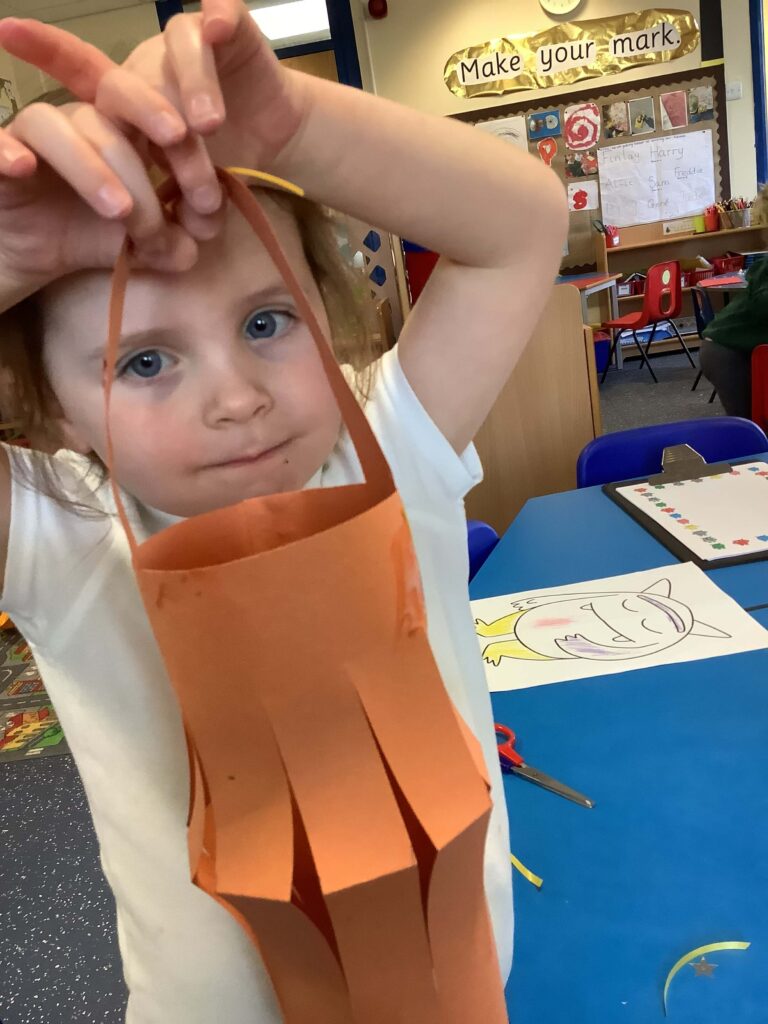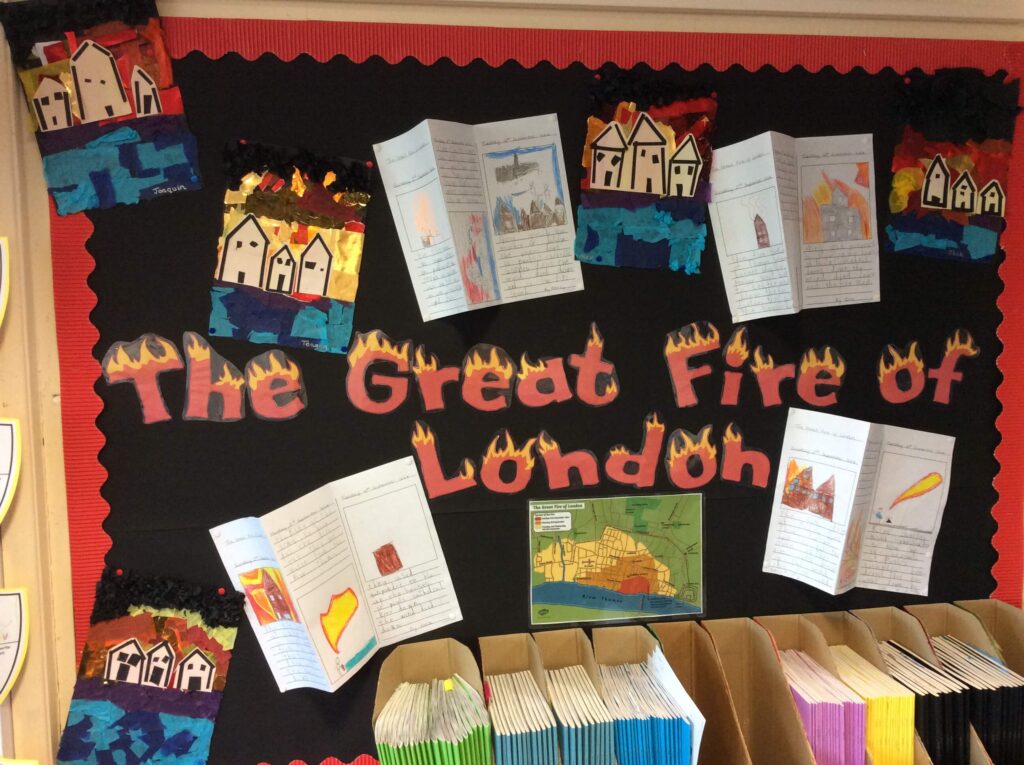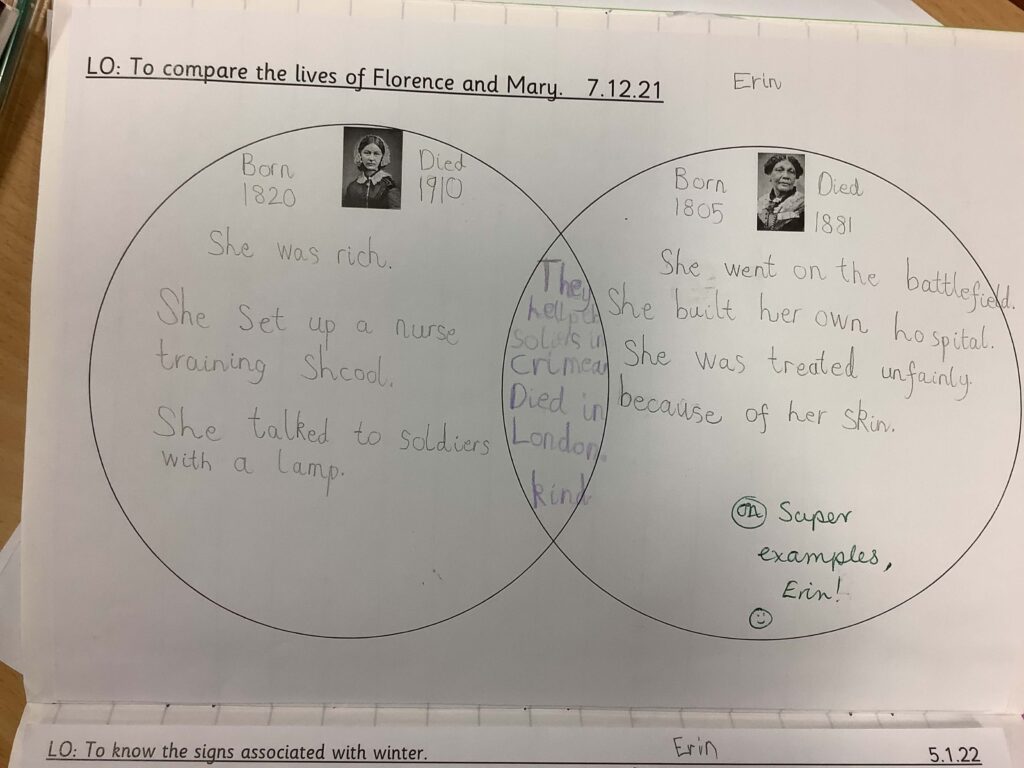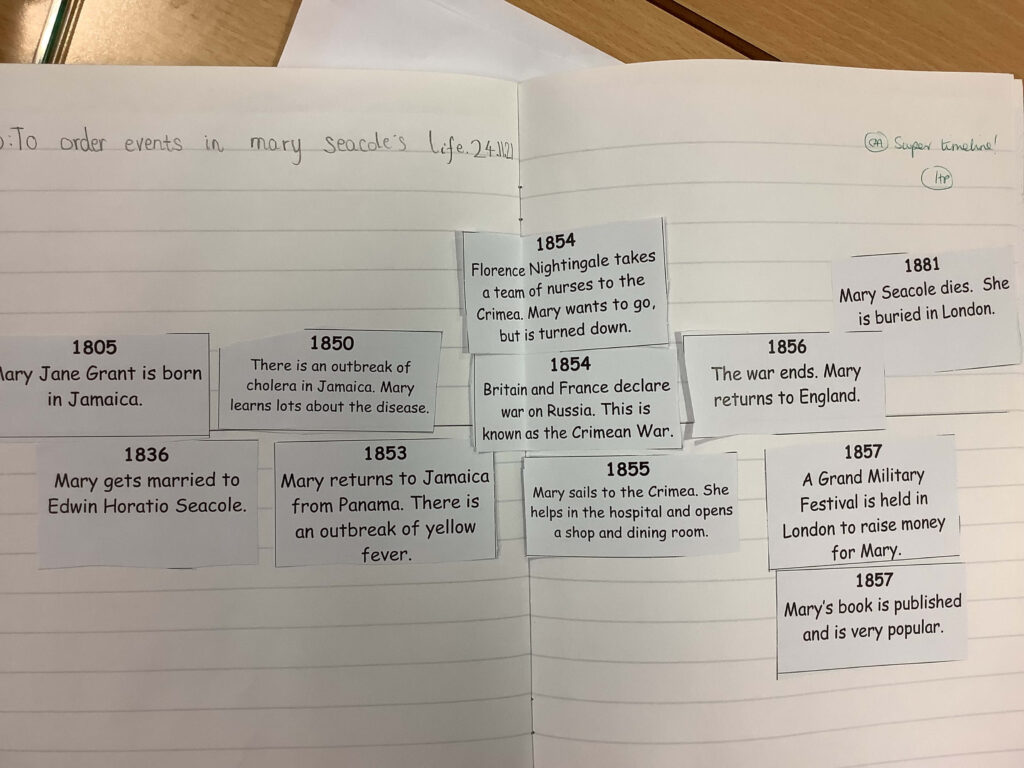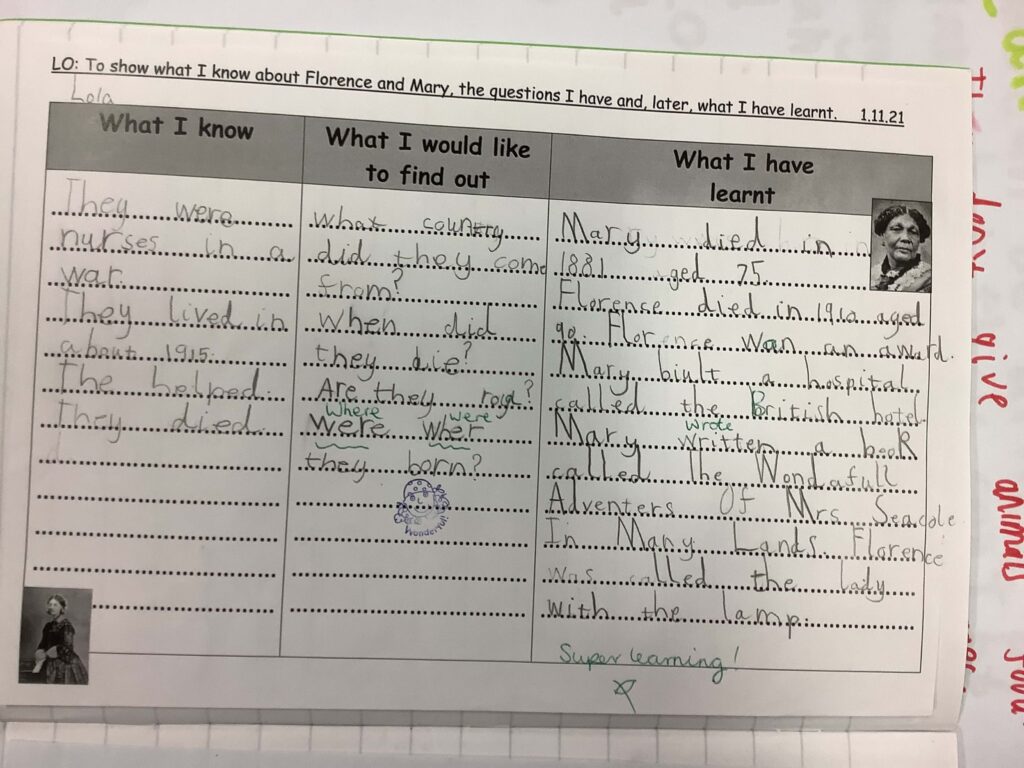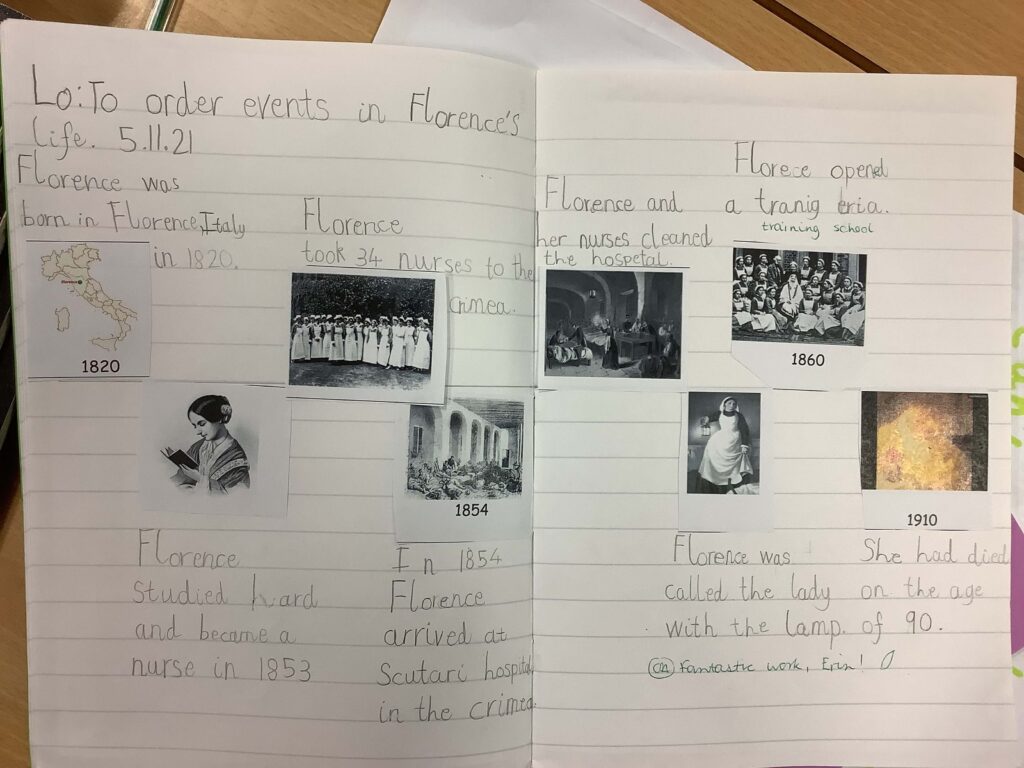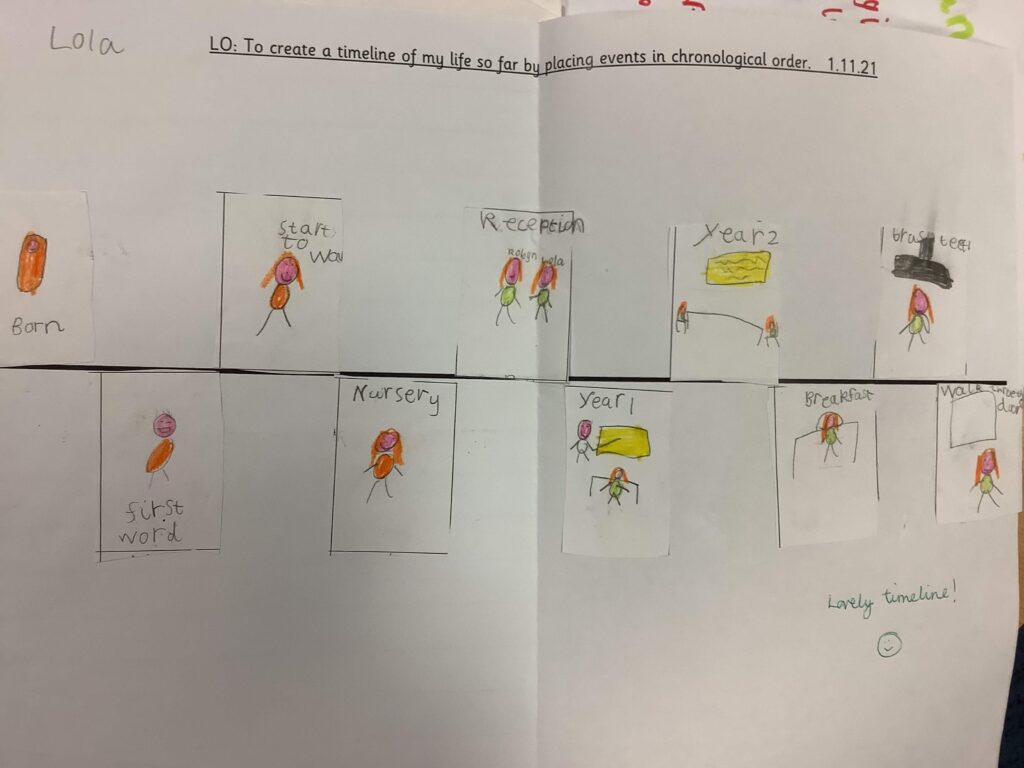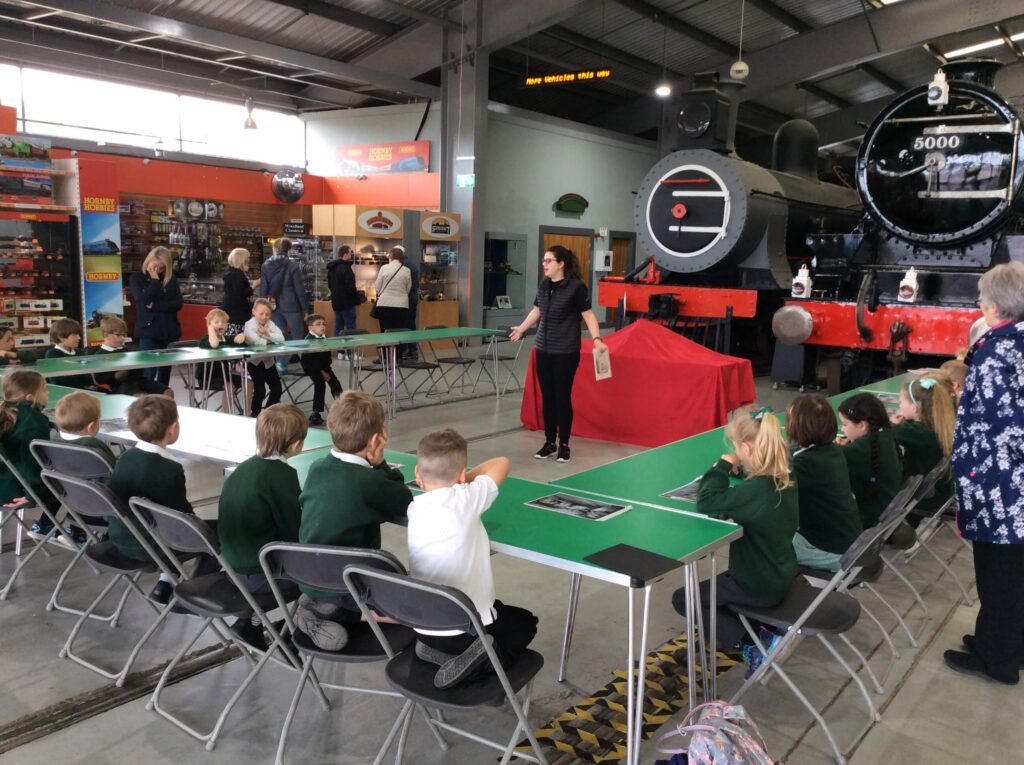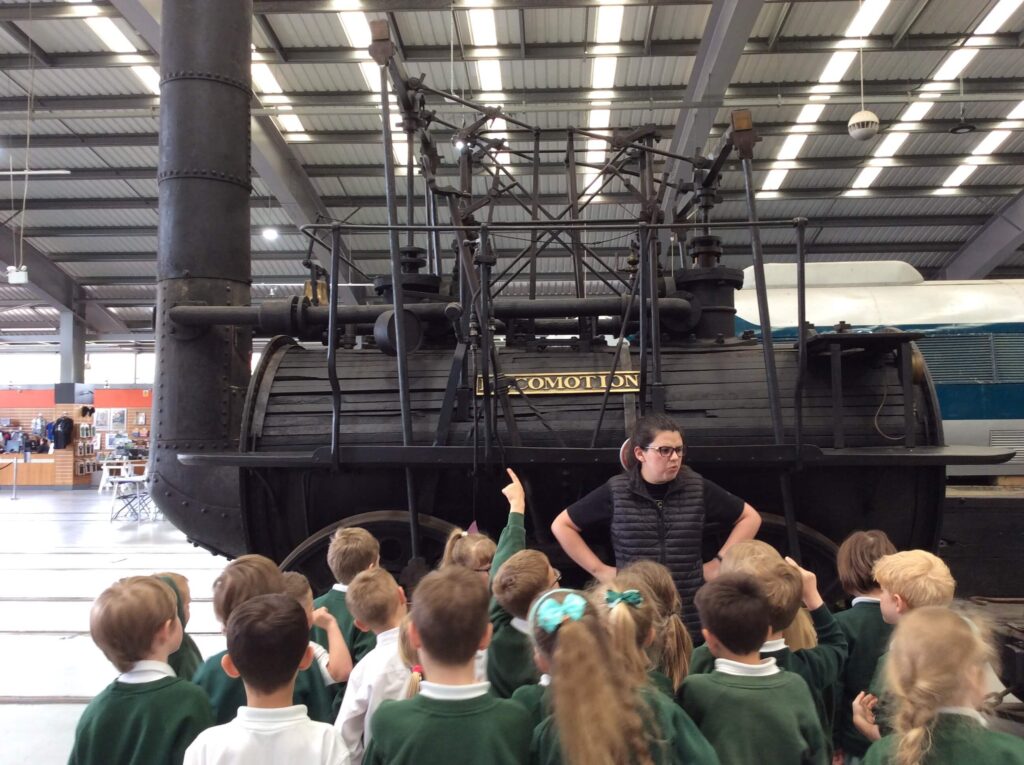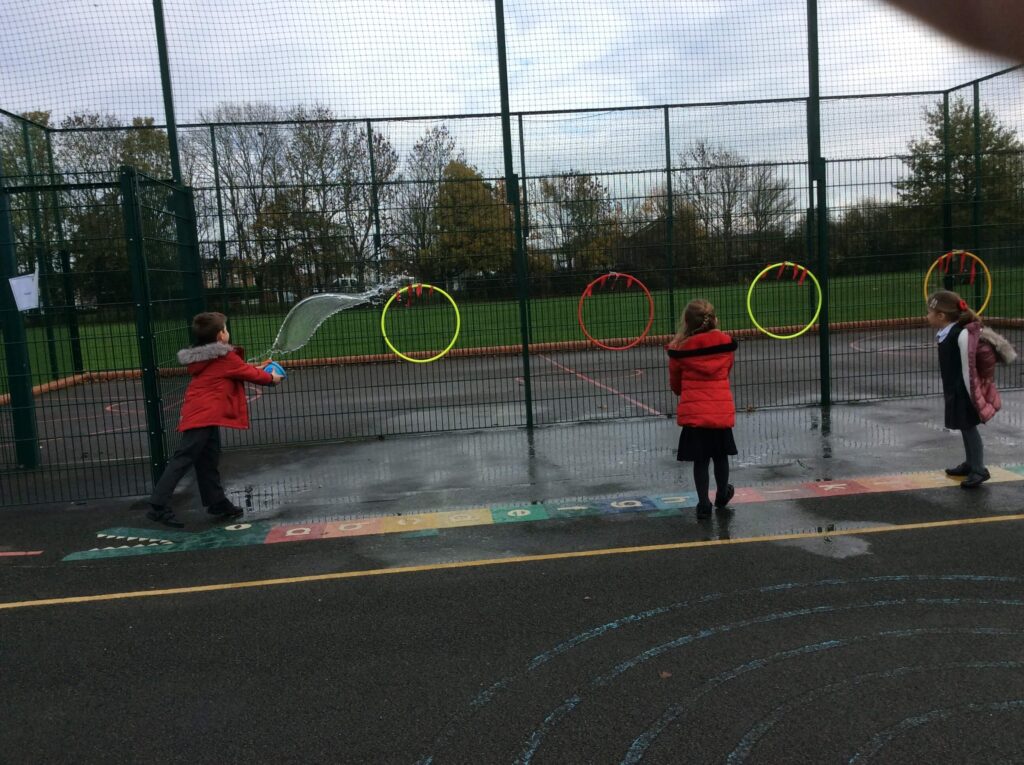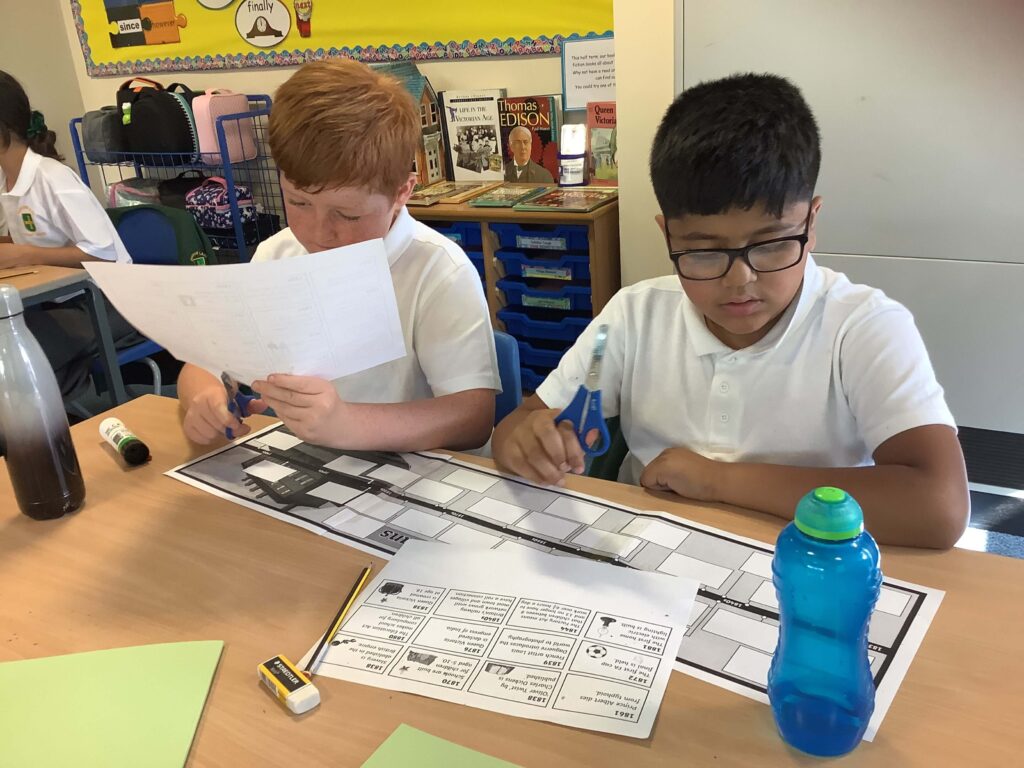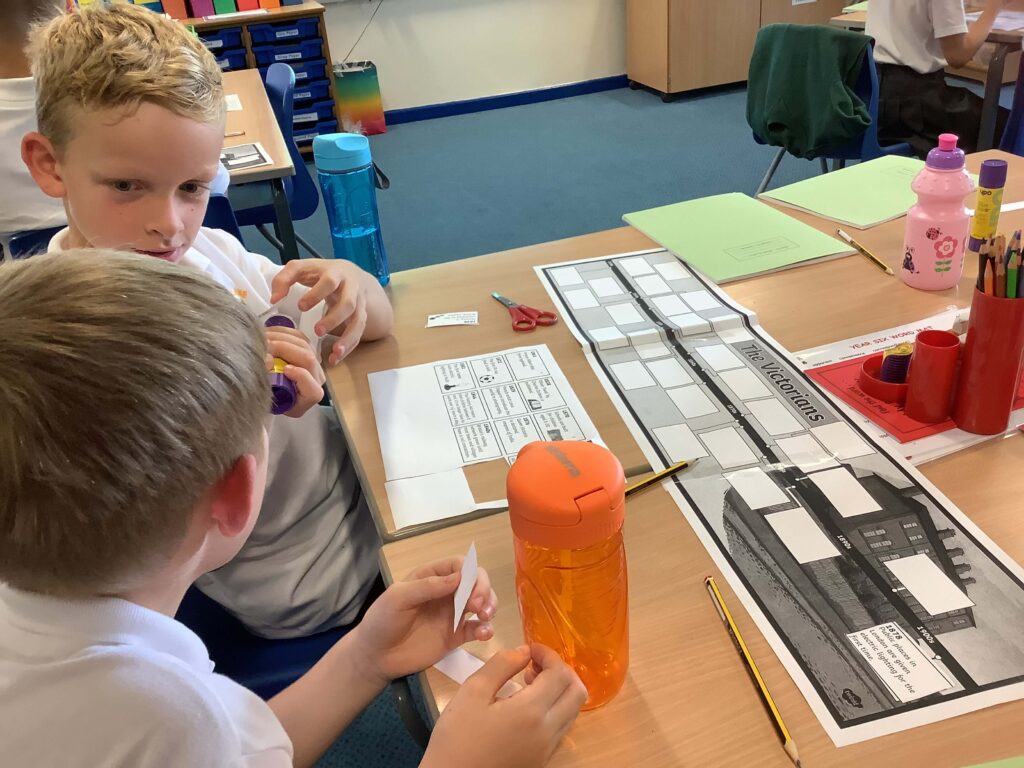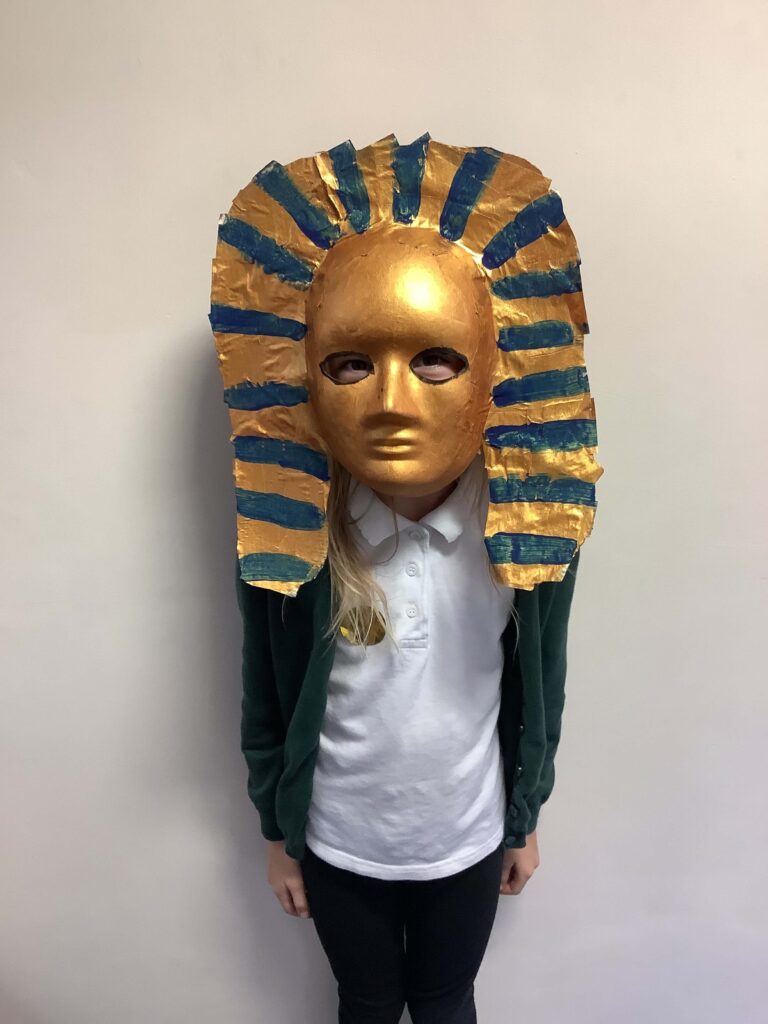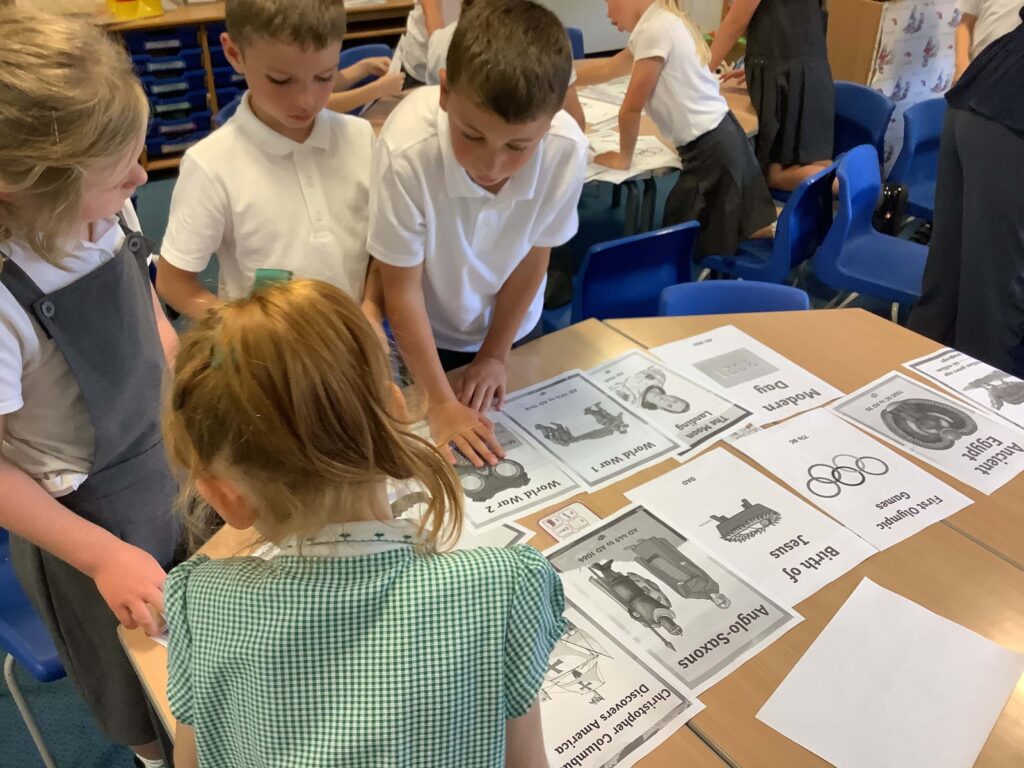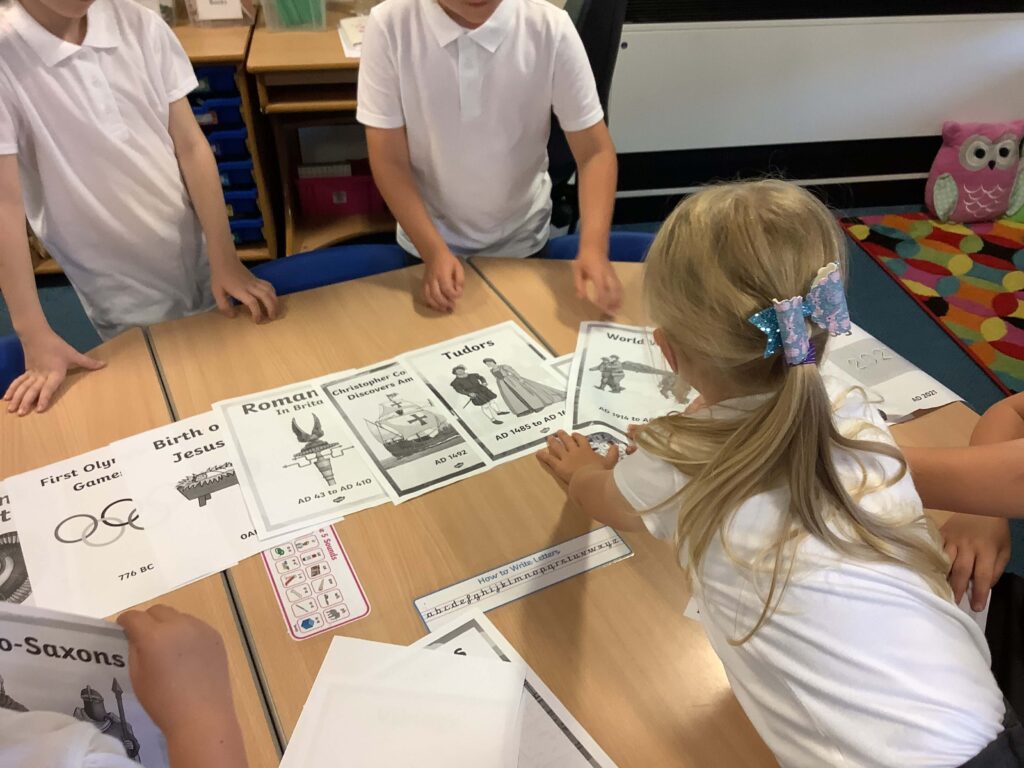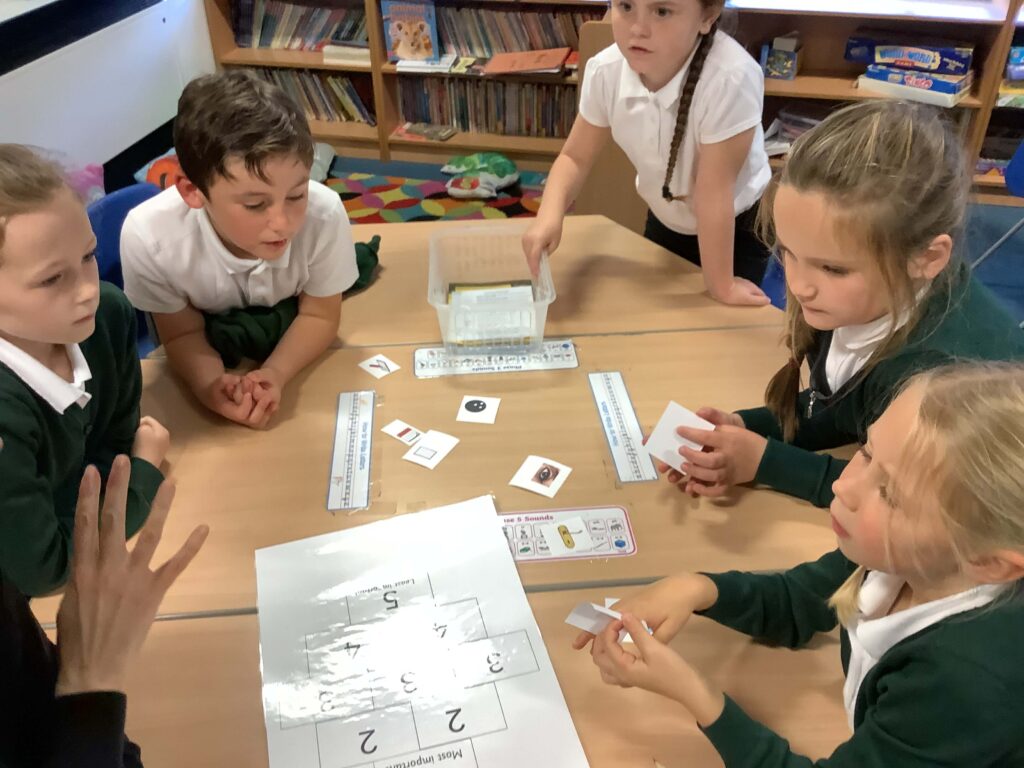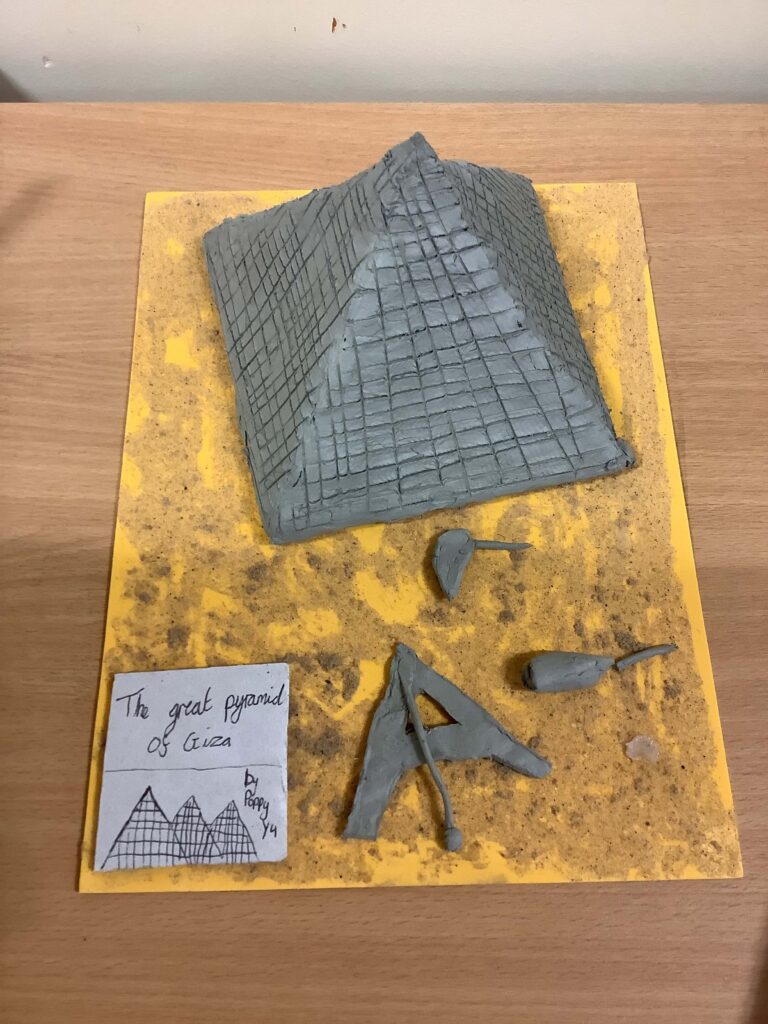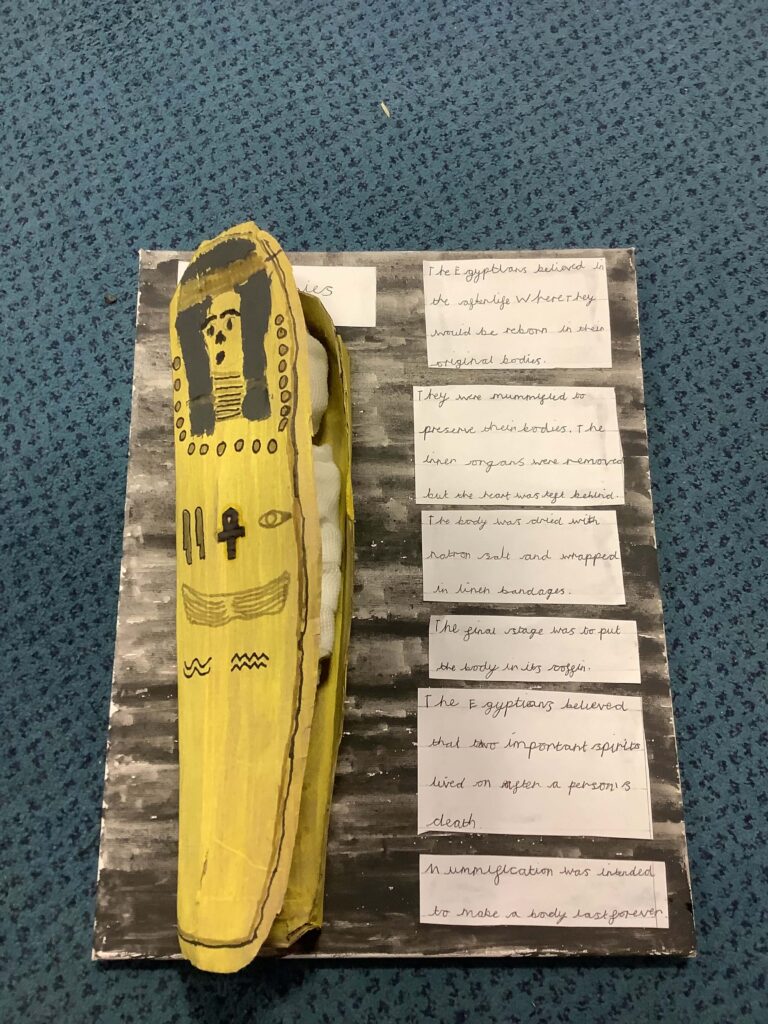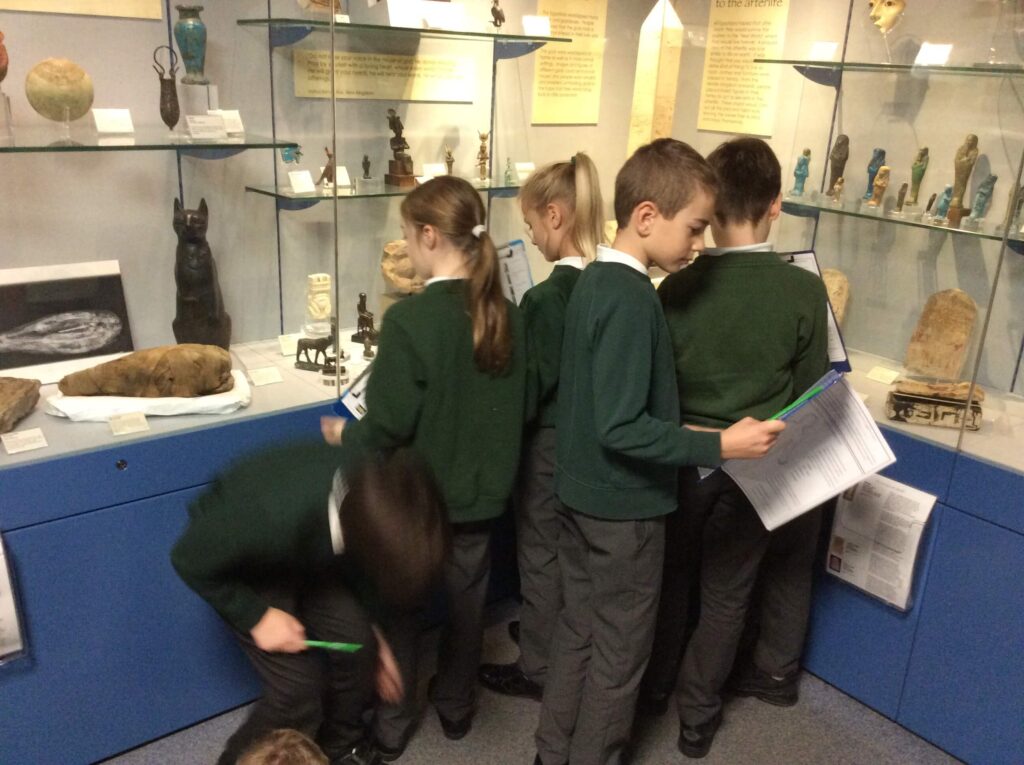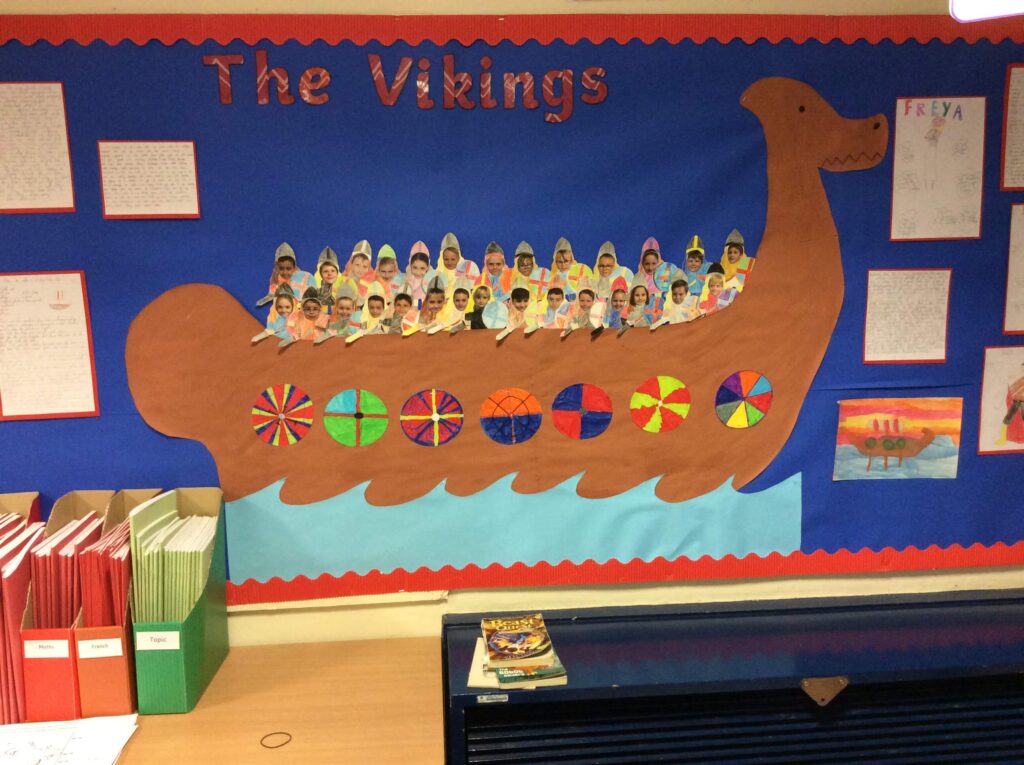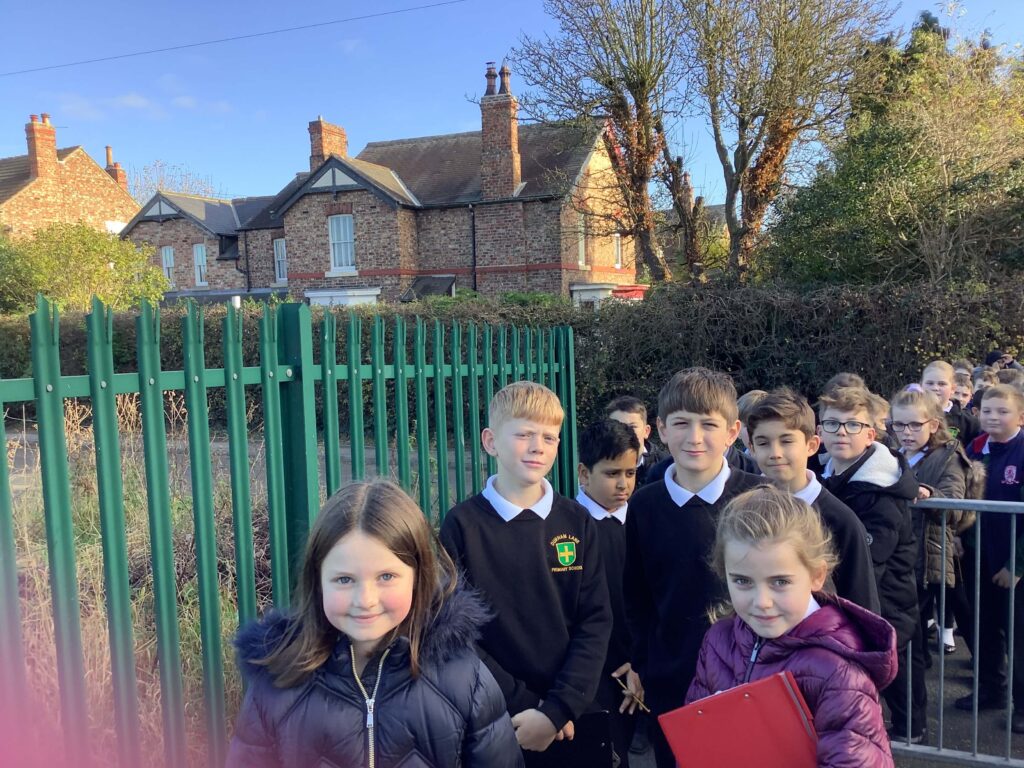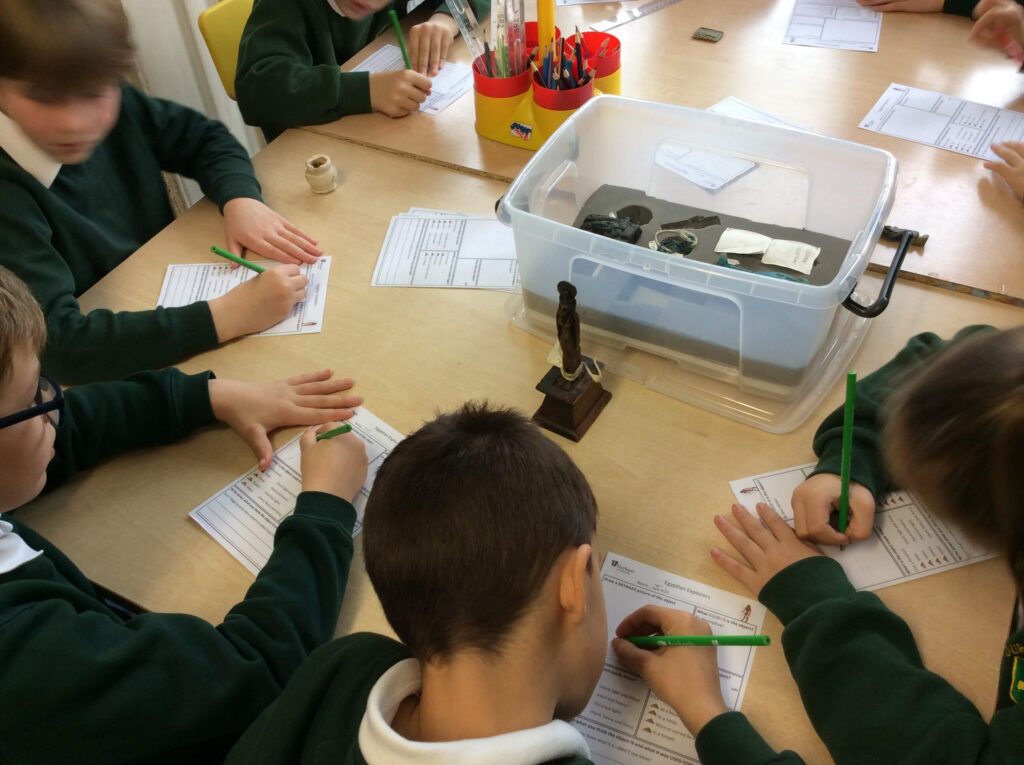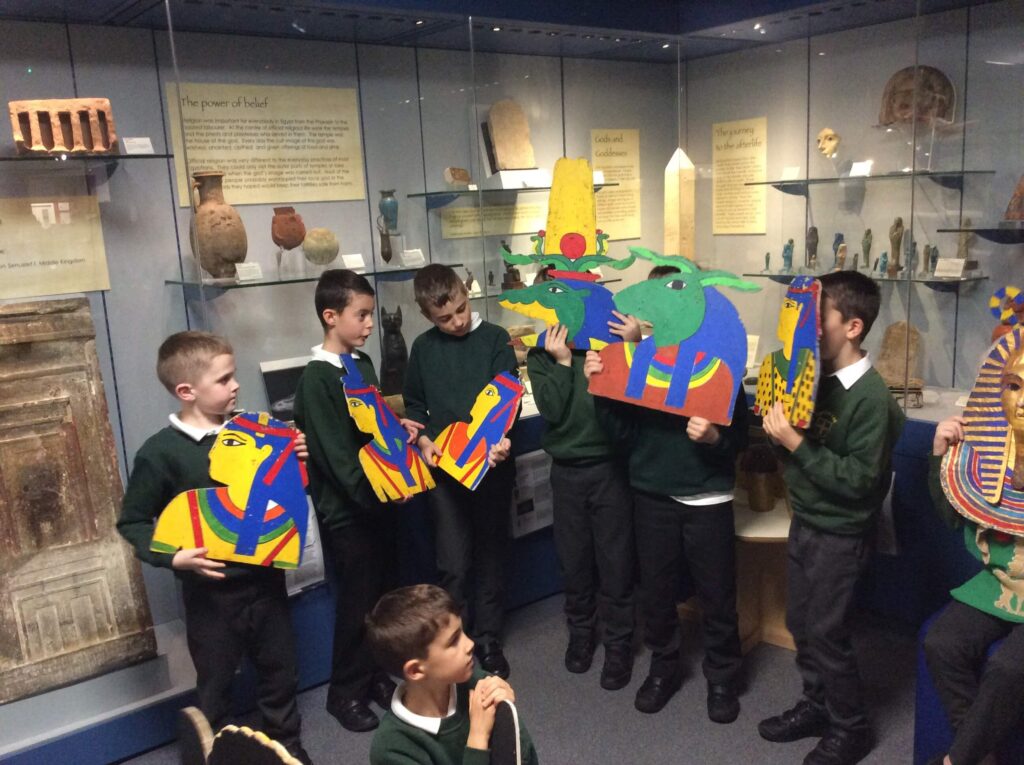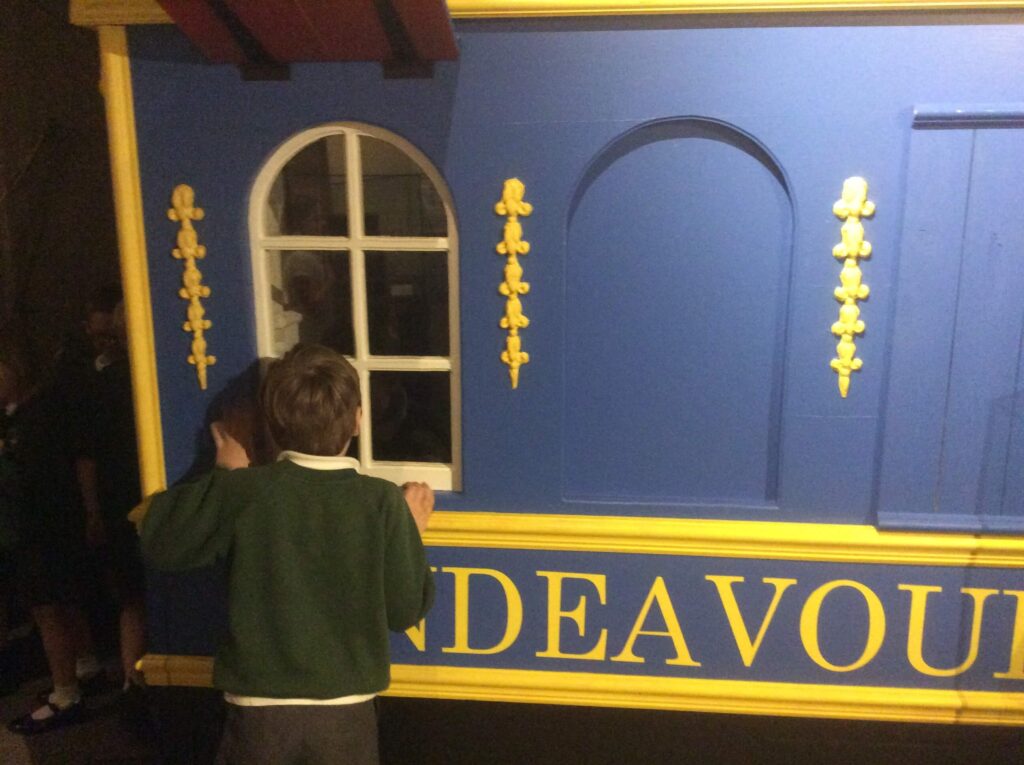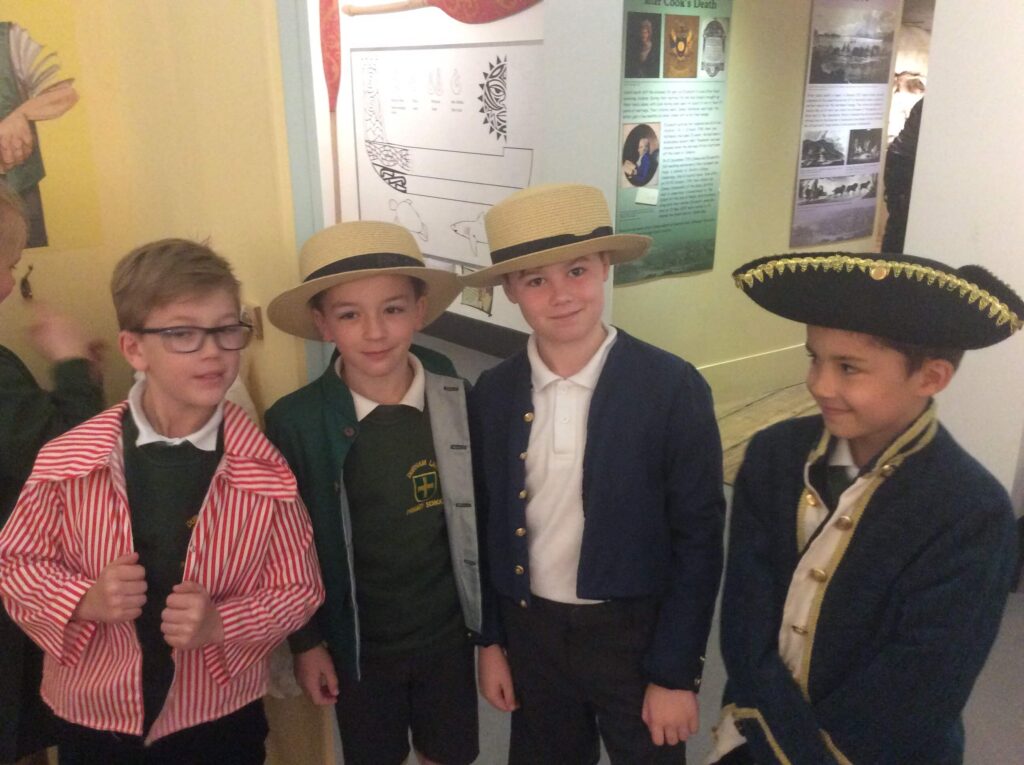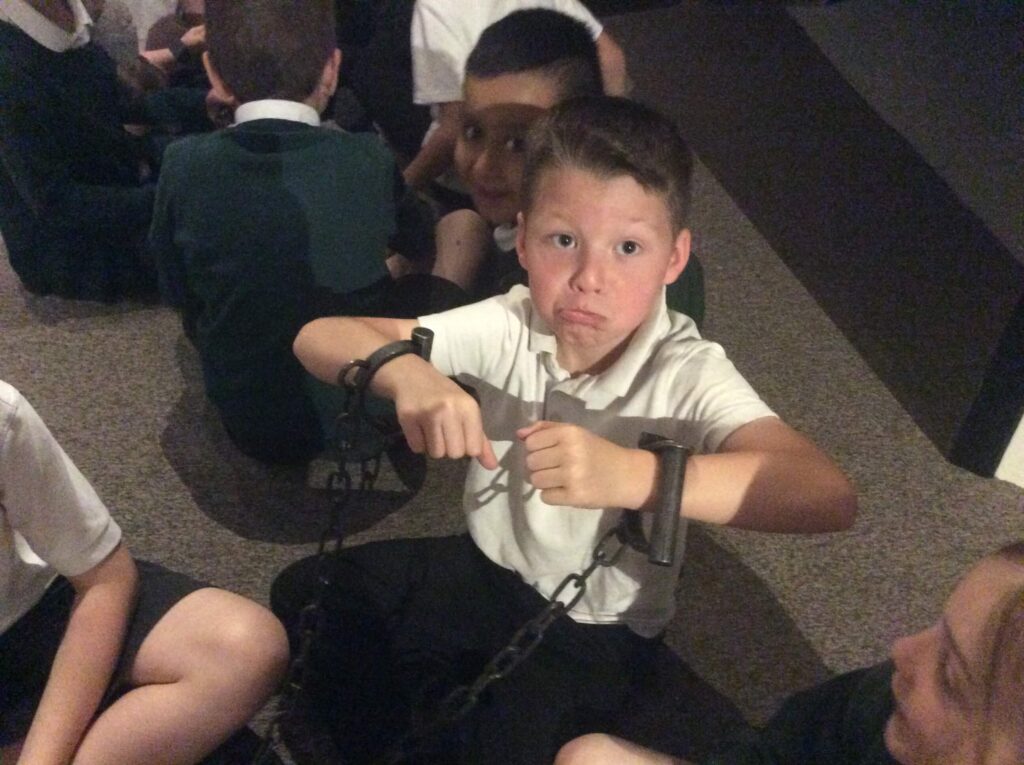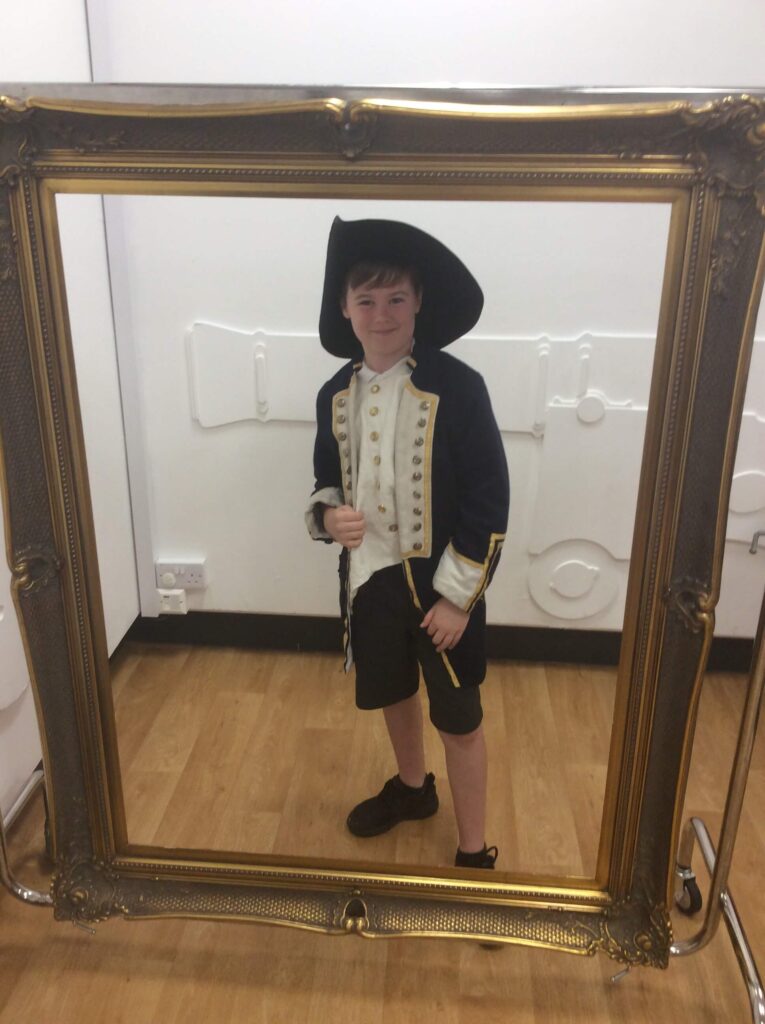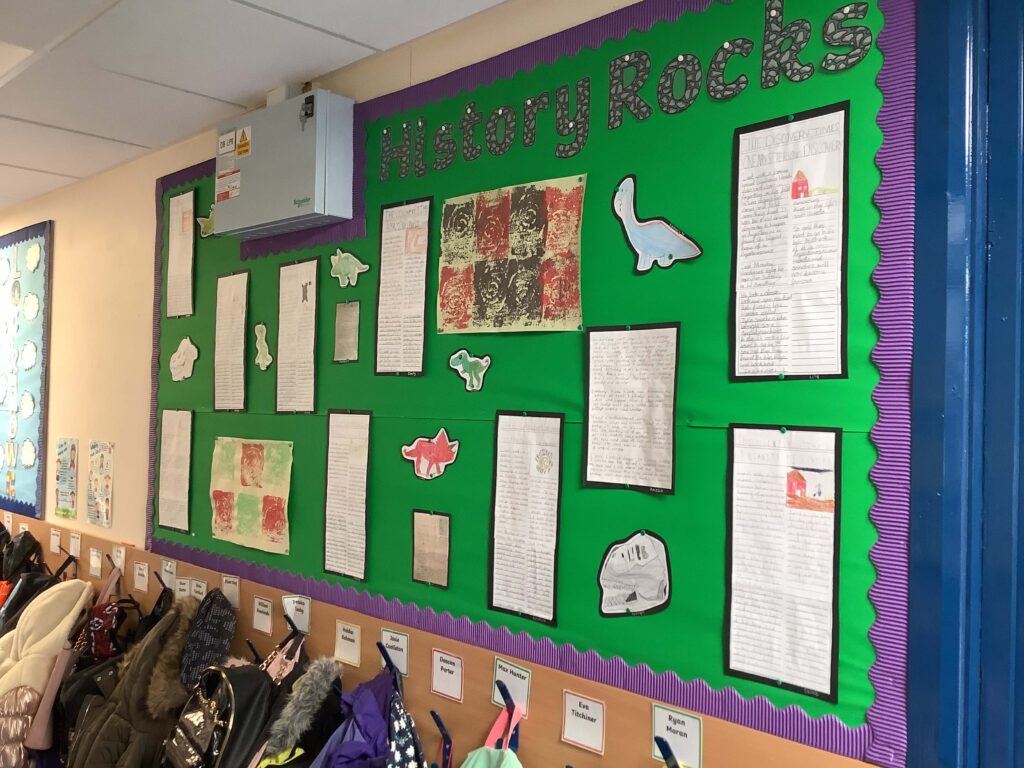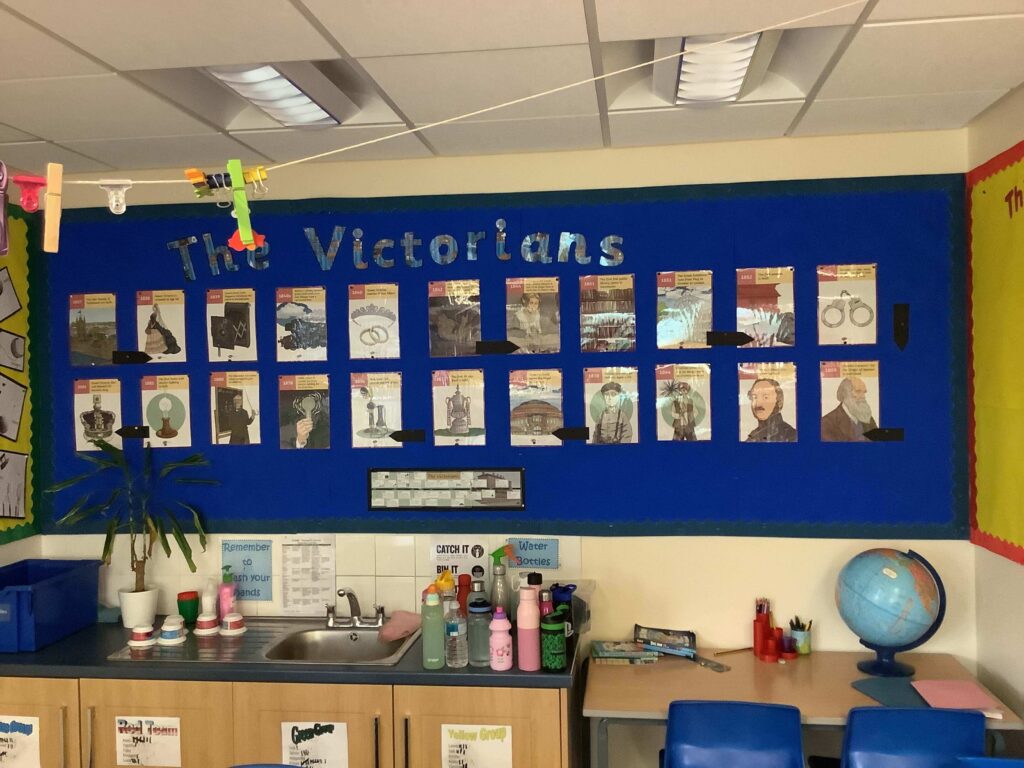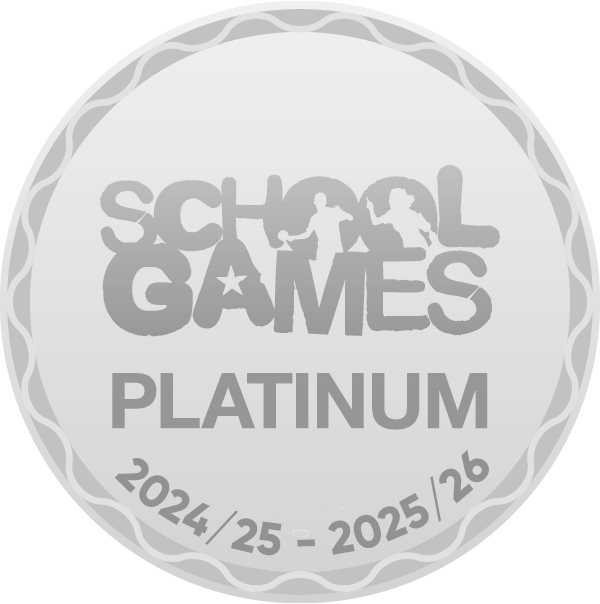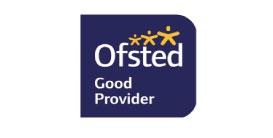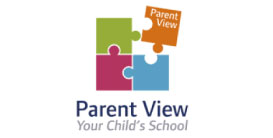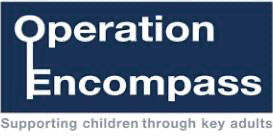History Intent Statement
History Subject Leaders: Mrs Neave and Mrs Eastwood
Intent – what we aim for children to achieve through our History curriculum:
At Durham Lane Primary School, we provide high-quality history lessons which inspire children to want to know more about the past and to think and act as historians. We aim to maximise opportunities for every child so that they know more, remember more and understand more. We provide children with a broad and balanced curriculum that encompasses British Values throughout, ensuring the progressive development of historical concepts, knowledge and skills. By linking learning to a range of cross-curricular topics, children have opportunities to investigate and interpret the past, understand chronology, build an overview of Britain’s past, as well as that of the wider world, and to be able to communicate historically.
Implementation – how we achieve our aims:
As a school, we aim to create an inquisitive learning environment within classrooms and reinforce an expectation that all children are capable of achieving. The study of history at Durham Lane allows our pupils to question and discover more about their British heritage, as well as the world around them. This allows them to develop a deeper understanding of exactly how our history has led us to where we are now.
Our progression of skills in history starts in the Early Years and ends in Upper Key Stage 2. It progresses through the following areas of skill:
- Chronological understanding
- Range and depth of historical knowledge
- Interpretations of history
- Historical enquiry
History Key Concepts Map
History at Durham Lane is taught through our cross-curricular topics on a two-year rolling programme available on our website.
We enrich our children’s lessons using visits, visitors, collections, artefacts, books and the internet. Children are enthused by visits to places such as Preston Hall Museum, Locomotion Train Museum, Durham University’s Oriental Museum, The Captain Cook Birthplace Museum, The Dorman Museum and a service for Remembrance at the Garden of Remembrance in Stockton.
Children are given the opportunity to create a ‘Museum in the Classroom’. Creating a school exhibition about local history brings a real sense of meaning to learning about the past, as well as providing opportunity for cross curricular learning. Working in collaboration with Tees Valley Museums allows children to understand the important role museums and other sources play in understanding our local history.
We aim to encourage the children to become successful historians by developing:
- An excellent knowledge and understanding of people, events and contexts from a range of historical periods, including significant events in Britain’s past;
- The ability to think critically about history and communicate ideas confidently to a range of audiences;
- A respect for historical evidence and the ability to make critical use of it to support learning;
- The ability to use historical evidence, from a range of sources, to think, reflect, debate, discuss and evaluate the past by formulating and refining questions and lines of enquiry;
- A sense of curiosity about the past and how and why people interpret the past in different ways.
Each class has a timeline which is added to each year and follows the children into the next year group. The timeline is referred to throughout topics to help children know more, remember more and understand more. Each child also has a Remember Book where they keep a record of knowledge organisers for each topic. Knowledge organisers highlight the key concepts which we would like all children to have learnt by the end of the topic. The children’s Remember Books follow them through school and can be used to refer to previous topics and see links between learning in different year groups.
Impact – how we know we have achieved our aims:
The impact of our history curriculum is measured by comparing what children knew at the start of the topic to what they know at the end. Children in Foundation Stage are assessed within Understanding The world Around Them and their progress is tracked using the Development Matters Document. Expectation levels are reported to parents at the end of the Reception year
Throughout the rest of school, we measure the impact of our curriculum through the following methods:
- Thinking Skills activities
- KWL grids and mind maps. After the topic has been taught, we ask children to add what they have now learnt using a different coloured pen. This allows us to see how much the children have remembered and how much progress they have made.
- Summative assessment of pupils’ skills (termly data is put on our Insight tracking system and is analysed by the subject leader);
- Images and videos of the children’s practical learning;
- Discussions with pupils about their learning (pupil voice);
- Lesson observations and feedback given by subject leader
- Annual reporting to parents about their child’s achievement and effort within history;
- Children are questioned about their current and previous learning;
- Children are encouraged to question each other and discuss their knowledge whilst completing their historical learning;
- Displays of children’s work are in classrooms and around school, celebrating learning and demonstrating progression across the school.
History in Early Years Foundation Stage
History in Key Stage One
History in Key Stage Two


